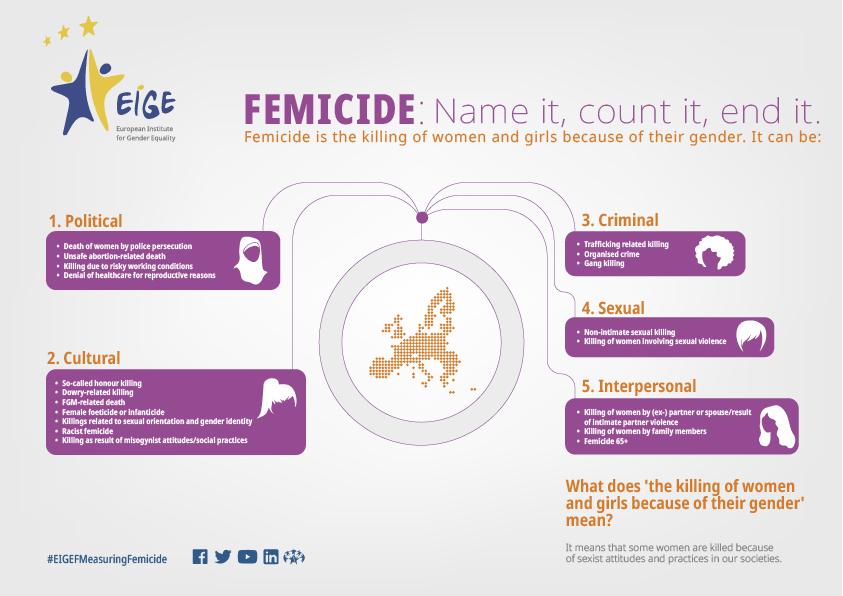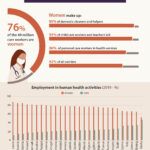Femicide is the killing of women and girls because of their gender. It can include intentional homicides, such as the killing of women by their current or former partners, as well as unintentional killings, such as the death of a woman undergoing an unsafe abortion.
According to official data gathered by EIGE, 444 women across 10 EU Member States were killed by their intimate partners in 2020.
EIGE has released a package to help EU countries gather solid data to prevent such killings.
We need a common understanding of what counts as a femicide
To help countries identify the different forms of femicide, EIGE’s package includes a classification system, as well as guidance on how to identify the ‘gender dimension’ of a female homicide.
While no EU Member State currently has a legal definition of femicide, some countries do recognise gendered motivations behind killings of women in their laws, for example because of hatred on the grounds of her sex. This has allowed EIGE to assess the different ways EU countries measure femicide and provide recommendations on how to improve.
A common EU-wide definition of femicide would help EU Member States identify these gender-based killings, which currently vanish into female homicide statistics. Knowing the motivations and circumstances that lie behind the killing of women and girls can help EU governments better protect potential victims, as well as punish and deter perpetrators.
We need rich and comparable data to properly measure femicide
The more data we have about the killings of women and girls, the more likely it is that we will be able to correctly identify femicides. And the more EU countries collect the same type of data, the more information we have on the motivations and circumstances behind these killings.
EIGE advises EU countries on a set of variables to collect at a minimum in order to establish whether a killing is a femicide, and to gain more understanding about the context behind it. Important variables include: demographic information on victims and perpetrators; the relationship between victim and perpetrator; the context of the killing, such as whether there were any child witnesses; and the presence of any gendered risk factors such as dependence or previous violence.
Laws and data collection practices are slowly improving to better capture femicides
EIGE’s femicide package finds that more refined laws and data collection practices on femicide are emerging in certain EU Member States. There is also increased awareness of the usefulness of statistics and their importance in supporting the planning and monitoring of policies.
To raise awareness about violence against women and kick-off the ‘16 days of activism against gender-based violence’ campaign, important buildings around the world will be lit up in orange. EIGE will light up Europe House in Vilnius on 25 November, to mark the International Day for the Elimination of Violence Against Women. In Brussels, the European Commission, the Council of the European Union, the European Parliament and the European External Action Service will be lit up the same day. The theme of this year’s campaign is ‘Orange the World: End violence against women now!”








Leave a Reply